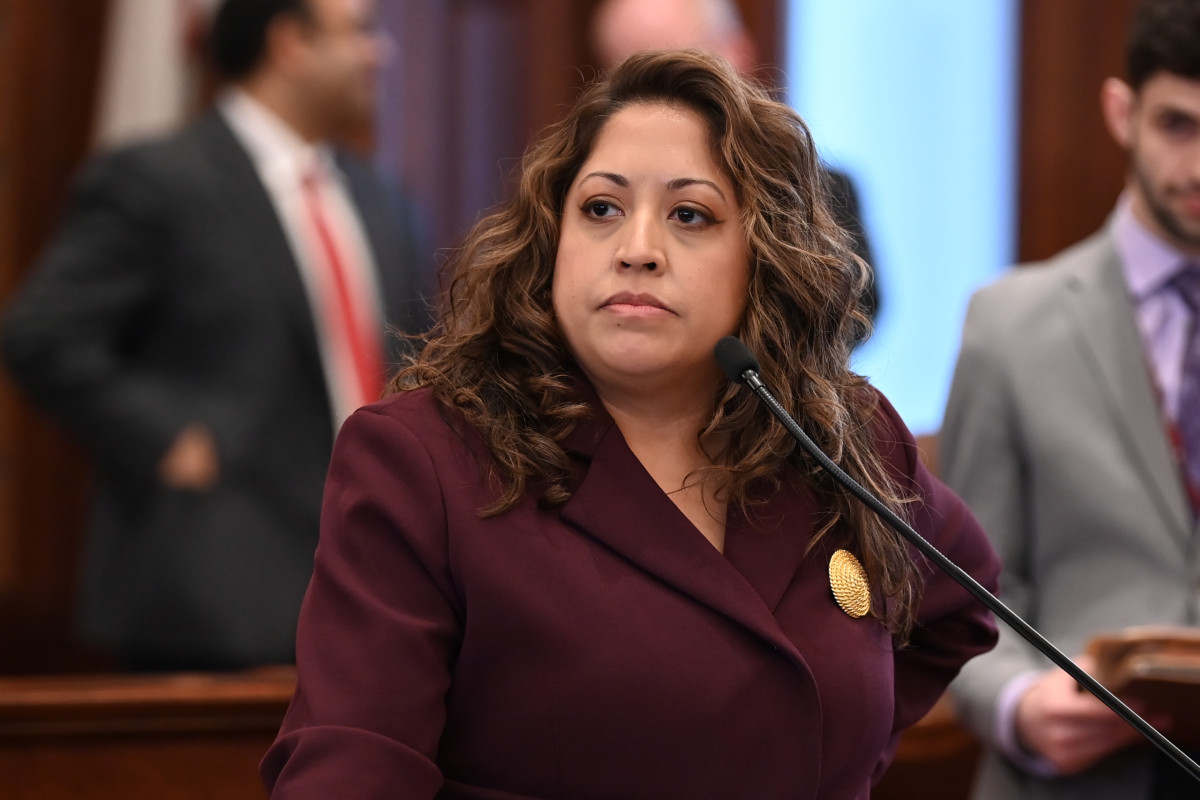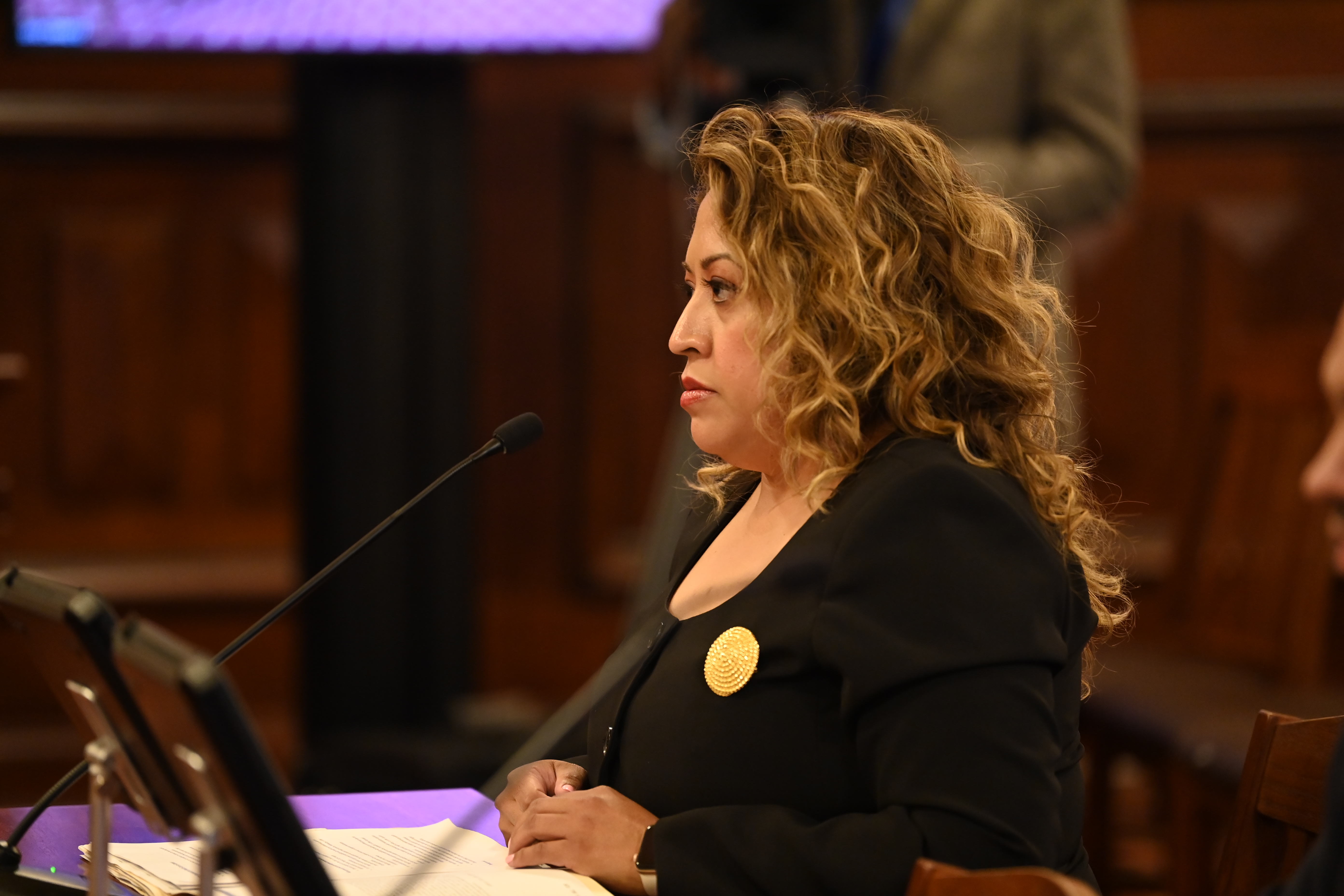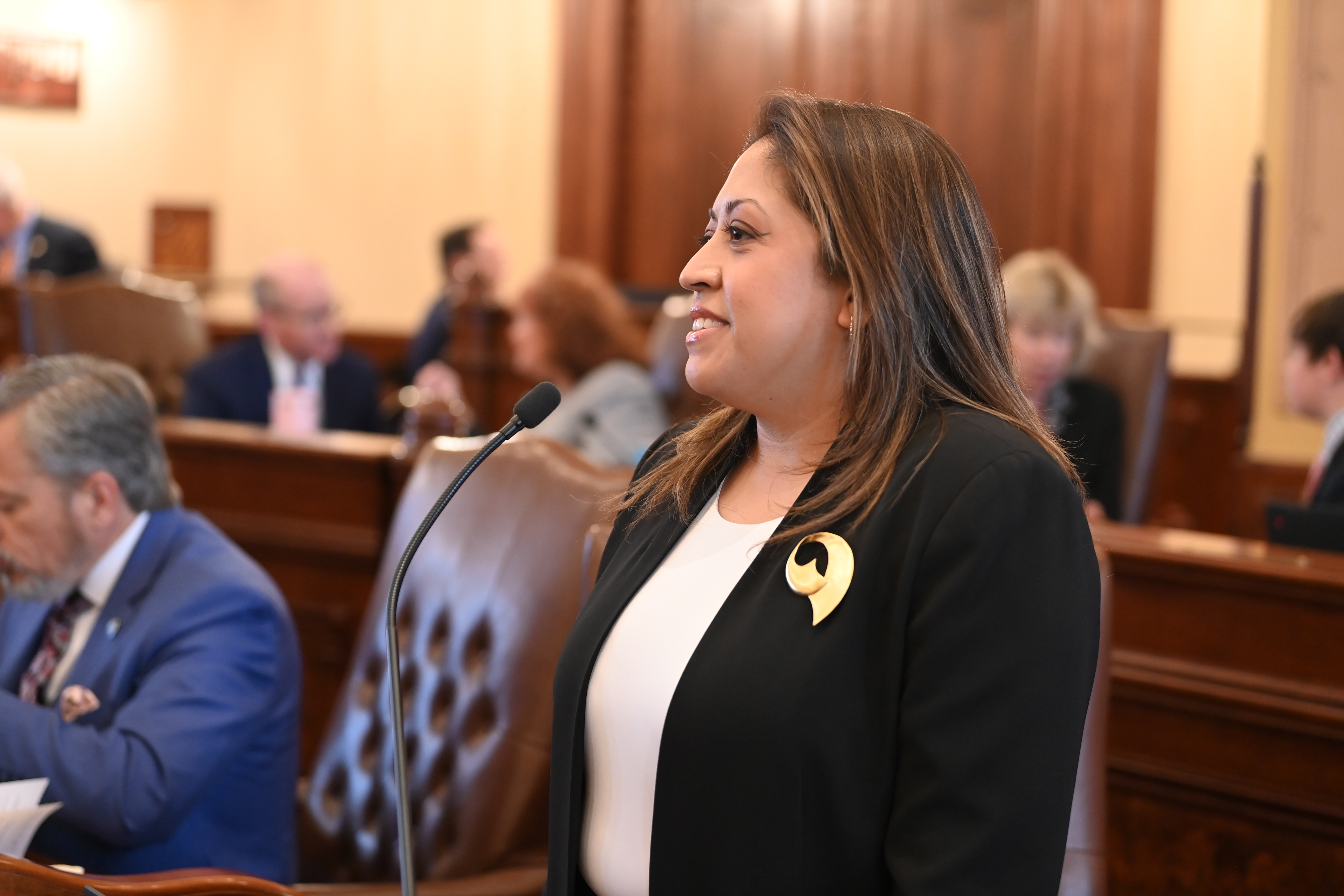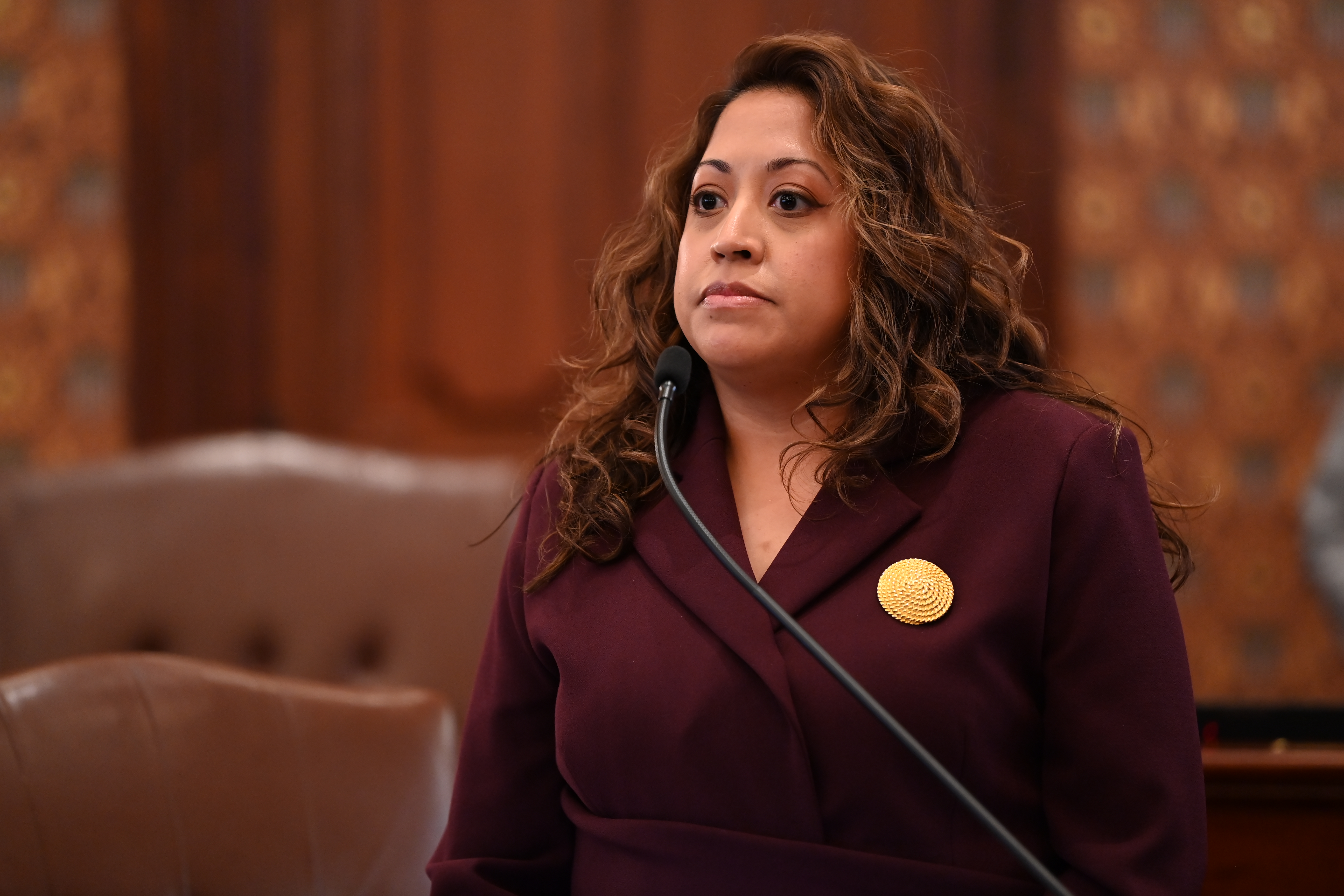- Details
- Category: News

SPRINGFIELD – Aiming to make reproductive health care more accessible for young adults, State Senator Celina Villanueva spearheaded a measure that would expand access to contraception and other essential services directly on campus.
“Our job as legislators is to listen and act—and students have been clear: they need care that meets them where they are,” said Villanueva (D-Chicago). “This proposal ensures they can get the care they need where they are—on campus and on their terms.”
Read more: Villanueva leads expansion of reproductive health care access for college students
- Details
- Category: News
SPRINGFIELD – In a continued effort to break down barriers to higher education, State Senator Celina Villanueva advanced legislation that ensures all Illinois residents—regardless of background—have the opportunity to apply for and receive student aid.
“This legislation builds on our commitment to equity by ensuring that all Illinois students—no matter where they were born—have a fair shot at accessing the resources they need to succeed,” said Villanueva (D-Chicago). “If a student calls Illinois home and is pursuing higher education, they deserve our support.”
House Bill 460 would guarantee that any student who resides in Illinois can be considered for state funded, locally funded, or publicly administered student financial aid, including programs offered by state agencies, local governments, and public colleges and universities.
The legislation aligns the eligibility rules for state and local student aid programs, ensuring consistency across the board and removing confusion that may prevent students from accessing the support they need to pursue their educational goals.
With House Bill 460, public institutions and government entities across Illinois would be required to apply the same inclusive standards when determining student aid eligibility—creating a clearer, more equitable path for students working to better their futures.
“This is about making higher education more accessible and removing bureaucratic hurdles for those already contributing to our communities,” Villanueva said. “Illinois thrives when all of its students are empowered to succeed.”
House Bill 460 passed the Senate Education Committee Wednesday.
- Details
- Category: News
SPRINGFIELD – In a continued effort to ensure survivors of crime are treated with dignity and respect from the moment they come forward, State Senator Celina Villanueva is leading legislation to protect victims from deceptive practices during investigations.
“Survivors of crime deserve compassion and transparency—not manipulation,” said Senator Villanueva (D-Chicago). “This measure makes it clear that basic dignity and truthfulness are not an option during investigations—they’re a right.”
- Details
- Category: News
SPRINGFIELD – To ensure students at public colleges and universities can access comprehensive reproductive health care, State Senator Celina Villanueva passed a measure expanding the availability of contraception and other essential services directly on campus.
“Students shouldn't have to jump through hoops to access basic health care,” said Villanueva (D-Chicago). “This legislation ensures that young people — many away from home for the first time — can get the care they need directly on campus.”
Read more: Villanueva expands reproductive health care access for college students
More Articles …
Page 4 of 47







